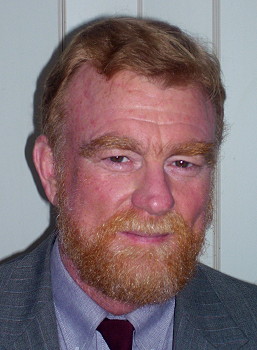Pastoral Counseling at the UU Church
of
Brevard
|
Rev. Dr. Gregory Wilson offers
Pastoral Counseling to individuals, couples,
families, and children at
an affordable, sliding scale fee.
Sessions are typically one hour
per
week, by appointment, in the Minister's Office at
the church.
Dr.
Wilson is a Fellow with the American Association of
Pastoral Counselors
(www.AAPC.org), and has been counseling individuals,
families,
couples and children for over 20 years.
For more information or
to schedule an
appointment, please call Dr. Wilson at 772-486-4029,
or email gvwilson@bellsouth.net.
|

|
Dr. Wilson can work with
you on issues like:
- strengthening your
marriage
- questions of
individual growth and change
- recovery from
childhood sexual abuse
- divorce
- blending families
- living with
anxiety
and depression
- the challenges
families face in the 21st century
Other
topics that you may address include:
- The nature of
family
spiritual
and emotional life
- The tension
between
family
health and social demands
- Nurturing and
protecting our
children
- The spiritual and
emotional
development of families
- Reducing the suffering
of emotional reactivity and intense anger, or their opposite,
emotional withdrawal, in families and relationships
For
more information about Gregory, see Rev.
Gregory Wilson, D. Min.
For
more information about Pastoral Counseling, see The American Association of
Pastoral
Counselors.
F.A.Q.:
Q: What is Pastoral
Counseling?
A: (Adapted
from
the AAPC website) Pastoral Counseling is a
unique form of psychotherapy which uses
spiritual resources as well as psychological understanding for
healing
and growth.
Pastoral Counselors are certified mental health
professionals
who have had in-depth religious and/or theological training. Because Pastoral Counselors
are
trained in both psychology and theology, they can provide
psychological as well as spiritual guidance to individuals and
families.
Q: How would I benefit from
Pastoral
Counseling?
A: At any
time,
individuals, couples or families can be confronted by
uncertainties and life experiences which threaten to exhaust
emotional
and spiritual resources. The loss of a loved one, parent-teen
conflict,
loss of job or the care of an elderly parent are just a few of
life’s
transitions and crises that can be depleting.
Q: How is Pastoral Counseling
different
from traditional Psychotherapy?
A: Pastoral
Counseling
is very
much the same as any other type of counseling you might seek
from a
psychotherapist, except that a pastoral counselor also has
training
in issues of spirituality and faith, and will always respect
your
beliefs, whatever they may be, and will help you integrate
what you
believe into how you resolve your current problems. While
some
individuals turn to a psychologist, social worker or
psychiatrist, others want support and the opportunity to discuss
their
problems or illness in a spiritual context.
Q: I am on medication for
depression.
Can I still benefit from counseling?
A:
Research has shown that a combination of counseling and
medication is
more effective than medication alone in helping a person
deal with
depression.
Q: I am a member of the UU
Church of
Brevard. Can I see Dr. Wilson for counseling?
A:
Dr. Wilson offers Pastoral Care to church members at no
charge, but
cannot engage in long-term (4 sessions or longer) counseling.
This
would be a form
of "dual-relationship" that can interfere with the counseling
process,
and with the pastoral relationship. If you have an issue that
calls for
long-term
counseling, Dr. Wilson can refer you to another counselor in
the area.
